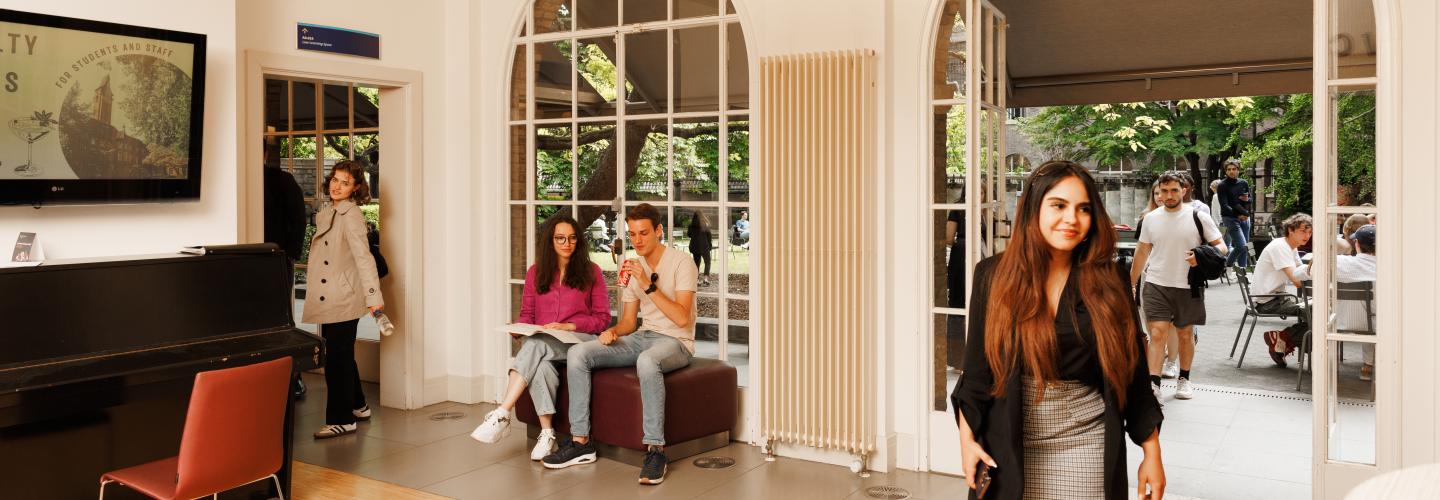Why this programme
How are businesses and individuals taxed as they cross borders? How do tax systems avoid both double taxation and double non-taxation? Who has the right to tax in a borderless digital economy? And how do global tax initiatives shape domestic tax policies and tax fairness? These are just some of the questions you will explore as a tax specialist. International and European tax law is a constantly evolving field of law that will stretch your intellectual abilities and challenge you to think critically across legal systems.
This programme offers a global perspective on cross-border and domestic tax issues, building on a solid foundation of tax law knowledge. It allows you to tailor your studies by specialising in selected areas that match your personal interests. With excellent career prospects after graduation and the opportunity to study in the beautiful and vibrant city of Maastricht, this programme is a unique and rewarding choice.
Good to know: Upon graduation, all students, including those with a background in economics, business administration, or accounting, will be awarded the Master of Laws (LLM) degree.
You should choose the Master International and European Tax Law when:
- You want to solve real-world tax challenges that arise across national borders.
- You are drawn to a legal field that interacts with many different areas of law.
- You enjoy solving complex legal puzzles through sharp legal analysis.
You are motivated by the societal relevance of tax law and fiscal policy.
If you’re interested in international taxation, this is the place to be.
Rufus, student International and European Tax LawWhat will you learn?
If you are aiming for a career in international and/or European tax law with a focus on personal and company taxation, the General Programme of the master’s programme International and European Tax Law offers you the legal foundation, practical insight, and critical skills needed to succeed in the field.
In this programme, you explore essential topics such as tax treaties, European corporate tax, transfer pricing, and the taxation of cross-border employment. Along the way, you learn to navigate complex legal issues like beneficial ownership, anti-abuse rules, and global minimum taxation, while developing a strong understanding of responsible tax planning in an international context. The elective component allows you to customise your learning experience, whether through a course on global tax policy and sustainable governance, an internship, or another relevant course. Finally, the master’s thesis gives you the opportunity to deepen your expertise by conducting research on a relevant topic of your choice.
Good to know: The programme International and European Tax Law offers three specialisations – the General Programme, the specialisation in Customs and International Supply Chain Taxation, and the specialisation in Tax and Technology. You can still change your mind and switch specialisations at the beginning of the master’s programme in September.
How will you learn?
This master’s programme combines lectures, tutorials, and preparation time to give you a well-rounded academic experience. At the heart of our education is Problem-Based Learning (PBL). In our small tutorial groups with a maximum of 19 students, you will engage intensively with your peers by solving practical problems in an interactive setting. PBL challenges you to identify and analyse complex legal problems in the field of tax law through active discussion, collaboration, and critical thinking.
This approach not only deepens your theoretical understanding of tax law but also builds the practical skills essential for your future career. It requires you to be proactive in setting learning goals and encourages you to work with your fellow students on legal issues. Moreover, throughout the programme, you will learn how to carry out thorough legal research and communicate legal arguments clearly.
What do our students think about Problem-Based Learning? They explain it in this video!
With our Problem-Based Learning method you...
- learn to think and work in a solution-focused way to solve practical problems.
- learn to conduct independent research and develop a critical mindset.
- learn to collaborate with others in a dynamic and international environment.
- get actively involved in small tutorial groups of maximum 19 students.
- acquire the knowledge and skills that will boost your future career.
Why in Maastricht?
Maastricht, home to the historic Maastricht Treaty, offers the perfect setting for a truly international legal education. Located in the heart of Europe, Maastricht University attracts a diverse and global student community. For over 30 years, it has been at the forefront of research and teaching in European and comparative law. The master’s programme in International and European Tax Law has welcomed students for over 20 years and is consistently ranked among the top 10 LLM programmes in international taxation.
The programme’s truly international classroom, with students from over 70 countries in the past and around 30 nationalities every year, creates a uniquely enriching environment. You will discuss international tax problems through the lens of diverse domestic tax systems, gaining deeper insights, broader perspectives, and a stronger ability to tackle complex cross-border issues.
Teaching staff
Good to know: During the master’s programme, you will benefit from close and personal contact with our core teaching staff – recognised experts in the field, who also bring valuable experience from professional practice. In addition, you will gain further insights from guest lecturers affiliated with leading advisory firms, tax authorities, international organisations, and academia.
Extracurricular activities
Moot court competition
The International and European Tax Moot Court organised by the International Bureau of Fiscal Documentation (IBFD) and KU Leuven is the world’s most renowned moot court in the field of taxation. Maastricht University has been a regular and very successful participant in recent years.
For students of the International and European Tax Law programme, the moot court competition offers a unique opportunity to delve into real-world tax disputes and develop essential legal skills, from drafting memoranda to mastering oral pleadings. In this video, our students share their personal experiences, including how they prepared, the challenges they faced, and the valuable lessons they gained.
Good to know: Participation in the International and European Tax Moot Court competition earns you six extracurricular credits. Within the General Programme, you also have the option to select a master’s thesis topic connected to the moot court case and your preparation work.
Master’s Honours Research Track
Are you thinking about going into research after you graduate? Then you should consider applying for our Master’s Honours Research Track. In addition to your regular studies, you will learn the main methodologies used in academic legal research, improve your practical research skills, and apply this knowledge in your master’s thesis. The track will give you the experience you need to be a successful PhD candidate.
Good to know: Completion of the Master’s Honours Research Track earns you 15 extracurricular credits, and a Law Honours Research Track certificate.
PREMIUM
Want to gain that extra edge by getting real-world experience during your studies? The PREMIUM honours programme will help you gain the experience and develop the skills employers are looking for. As part of a team of students and under the guidance of our academic staff, you will spend about three months working on a real-world assignment for a company, NGO or educational institution. It will take about 250 hours, but it will give you a lifetime of benefits.

